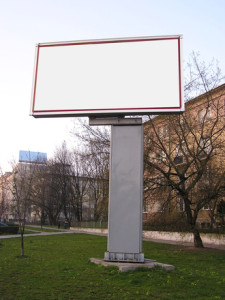October 28, 2019

On October 8, 2019, the United States Olympic and Paralympic Committee (“USOPC”) issued a new set of Olympic advertising guidelines in advance of the Tokyo 2020 Olympic Games. The new guidelines effectively relax the prior restrictions placed on athletes and advertisers by the International Olympic Committee (“IOC”). Specifically, Rule 40.3 of the IOC’s by-laws previously prevented athletes and their respective sponsors from publicly acknowledging, thanking, and congratulating each other during the Olympic games. The new Rule 40.3 makes such communications possible, with constraints set forth by the IOC. As explained by the USOPC, the recent change was undertaken to benefit athletes “both as they seek to secure personal sponsorship and maintain relationships with the personal sponsors who support them as they train and compete.”
What does this change in Olympic advertising policy mean for Olympic athletes and sponsors?
Rule 40’s Prior Strict Olympic Advertising Guidelines
For years, Rule 40 of the Olympic Charter has been used to restrict athletes from mentioning personal sponsors during the Olympics and prevent personal sponsors (who were not also official Olympic sponsors) from advertising their connection to the Games. Rule 40 was originally enacted for two reasons: (1) to prevent “ambush marketing,” or the unauthorized harnessing of publicity from a major event without sponsoring or contributing to that event; and (2) to ensure that the IOC could justify keeping the fees associated with official sponsorship at a high level.
For athletes, the implications and consequences of violating Rule 40 are significant. During the 2016 Olympics in Rio, athletes were required to cut ties with non-official sponsors beginning nine days prior to opening ceremonies until at least three days after the Games concluded. Failure to do so could result in sanctions, loss of medals, or being kicked out of the Games. Even if they did not personally violate Rule 40, athletes could face sanctions for their sponsors tweeting a good luck or congratulatory message using Olympic-related words (ex: medal, Olympian, Games, etc.).
The Changes to Rule 40
In a marked shift, the new Rule 40.3 reads as follows: “Competitors, team officials and other team personnel who participate in the Olympic Games may allow their person, name, picture or sports performances to be used for advertising purposes during the Olympic Games in accordance with the principles determined by the IOC Executive Board.” This change also creates the following two-step process by which athletes can officially register their personal sponsors with the USOPC:
- Through an online portal, the athlete can register his/her personal sponsor with the USOPC system; and
- Personal sponsors must then agree to the IOC’s Terms and Conditions via the Personal Sponsor Commitment (which affords the IOC protection against ambush marketing and unauthorized use of Olympic intellectual property).
If a personal sponsor fails to register through the online portal, it will be subject to the same Rule 40 restrictions that had previously been in place.
In accordance with this rule change, Team USA Athletes can now, during the Rule 40 period:
- Thank personal sponsors at the Games and on social media;
- Receive congratulatory messages from personal sponsors; and
- Engage in generic advertising.
For the IOC, this rule change requires personal sponsors to sign the Personal Sponsor Commitment, which affords the IOC additional protection against ambush marketing and the unauthorized use of Olympic intellectual property such marks and images.
How this Rule 40 Change will Impact Athletes and Olympic Advertising
The loosening of Rule 40 will likely cause ripple effects for Olympic advertising and athletes alike. For athletes, this change will provide a greater incentive for personal sponsors to sponsor their training in the months and years leading up to the Games. In addition to the obvious financial benefit, such support may afford athletes additional and enhanced training opportunities. For advertisers, while official sponsorship of the Olympics has been cost-prohibitive for many, brands may now look to personal sponsorship of athletes as a way to connect with the Olympics and, in turn, the consuming public. The prospect that an athlete can garner the attention of the entire world and organically acknowledge a brand is a unique and powerful opportunity for advertisers that the Rule 40 change has allowed for.
If you are interested in learning more about this topic or require assistance in connection with sports advertising or marketing for your business, please e-mail us at info@kleinmoynihan.com, or call us at (212) 246-0900.
Attorney Advertising
The material contained herein is provided for informational purposes only and is not legal advice, nor is it a substitute for obtaining legal advice from an attorney. Each situation is unique, and you should not act or rely on any information contained herein without seeking the advice of an experienced attorney.
Similar Blog Posts:
Coachella, Trademark Lawyers want “Filmchella” Organizer Held in Contempt
Legal Concerns for Social Media Influencers: Product Endorsements



